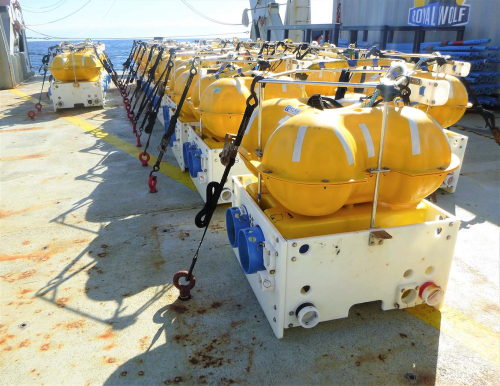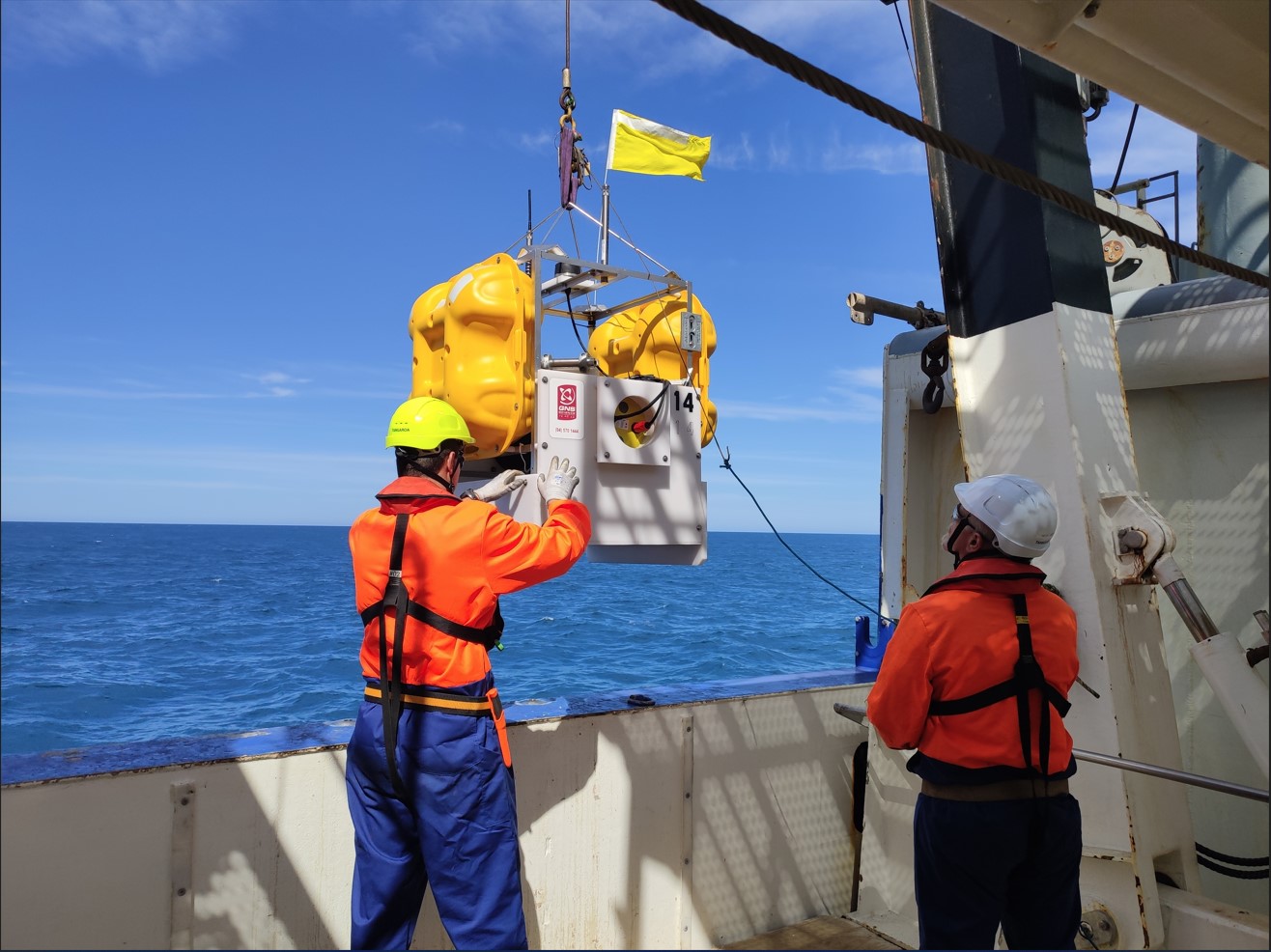
Revelle Blog #15 One Final Stop

Alec Yates is a Research Assistant at Victoria University of Wellington. He is currently working and reporting on the research occurring along the Hikurangi subduction zone on board the US research vessel Revelle.
Day seven at sea, and the rough weather is back in full swing as we approach the Cook Straight on our route to Wellington. Thankfully for us, we have now completed our recovery of all 42 electromagnetic instruments! The last instrument was recovered at 10am this morning, with the waves large enough to flip over the entire instrument before it came onboard! This is pretty impressive when you consider each instrument also has four legs attached, each containing electrical measuring equipment. For our geo-technicians on board, seeing the instrument flip over from waves alone was a first!
We have one final stop before returning to Wellington, where we will attempt the recovery of a GNS-deployed Wave Glider. This, unlike our other recoveries, rides along the ocean’s surface where it measures movements of the seafloor. It does this by continuously checking the distance between itself and multiple seafloor instruments surrounding it.
Just like the pressure sensors we installed onto the seafloor a couple days ago, the target for the Wave Glider is to record changes associated with slow slip earthquakes. These are earthquakes that release energy over weeks to months rather than over a few seconds. Unlike the pressure sensors, the Wave Glider measures horizontal rather than vertical movements. Combining these two datasets provides a more complete picture of how the Earth has moved during slow slip earthquakes.
Unfortunately, calm weather is required for the recovery of the Wave Glider and, with our arrival into Wellington scheduled for tomorrow morning, time is not on our side. We are currently in transit towards the Wave Glider, where we will wait for a possible opening for recovery. At present, the likelihood of recovery this time round looks slim!
Otherwise, it is pretty quiet onboard at the moment. With the boat moving as it is, continuously looking at a monitor or reading can be a quick way to make yourself feel uneasy. Luckily, for this blog, I am still managing! I’ve included a video of our current conditions, recorded from the safety of our laboratory.
[YouTube id=OFgdLstca9Q]
Back to Slow-Slip Earthquakes and Fluid Flow at the Hikurangi Subduction zone
Disclaimers and Copyright
While every endeavour has been taken by the East Coast Lab Hikurangi Subduction Zone M9 to ensure that the information on this website is
accurate and up to date, East Coast Lab Hikurangi Subduction Zone M9 shall not be liable for any loss suffered through the use, directly or indirectly, of information on this website. Information contained has been assembled in good faith.
Some of the information available in this site is from the New Zealand Public domain and supplied by relevant
government agencies. East Coast Lab Hikurangi Subduction Zone M9 cannot accept any liability for its accuracy or content.
Portions of the information and material on this site, including data, pages, documents, online
graphics and images are protected by copyright, unless specifically notified to the contrary. Externally sourced
information or material is copyright to the respective provider.
© East Coast Lab Hikurangi Subduction Zone M9 - www.eastcoastlab.org.nz / +64 6 835 9200 / info@eastcoastlab.org.nz
